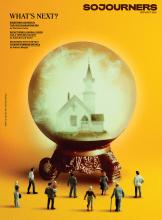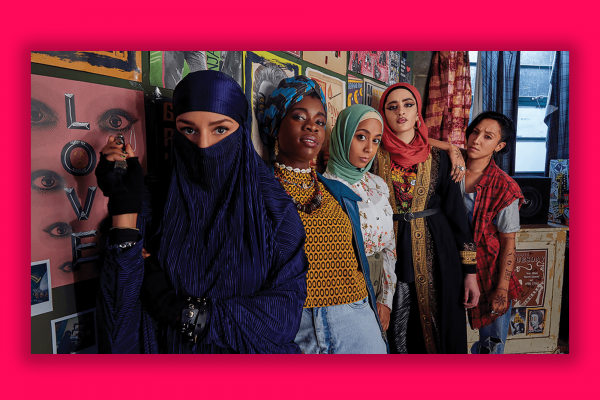NO MATTER YOUR racial, ethnic, spiritual, or geographic background, or where you fall on the gender spectrum, a vital part of adulthood is determining your identity—particularly in relationship to the community you grew up in. At some point, we all diverge from others’ opinions of us. Hopefully, we also find people who help us in our quest to define ourselves.
The Peacock series We Are Lady Parts, about an all-female, Muslim punk band, shows a group of characters who support each other on their individual journeys of identity, with their religion and larger community playing central roles. The series, created and written by Nida Manzoor, presents a diverse look at modern-day Muslim womanhood. Its themes also carry over into the broader experience of maturing alongside your faith, and what happens when your expression of belief conflicts with cultural expectations.
Lady Parts is fronted by the fierce feminist Saira (Sarah Kameela Impey). Earthy mom Bisma (Faith Omole) plays bass, and aggressive Ayesha (Juliette Motamed) is on drums. Momtaz (Lucie Shorthouse), often shown vaping through her niqab, is their manager. Saira decides the band needs a lead guitarist, eventually selecting Amina (Anjana Vasan), a painfully shy, tightly wound Ph.D. student.
Read the Full Article

